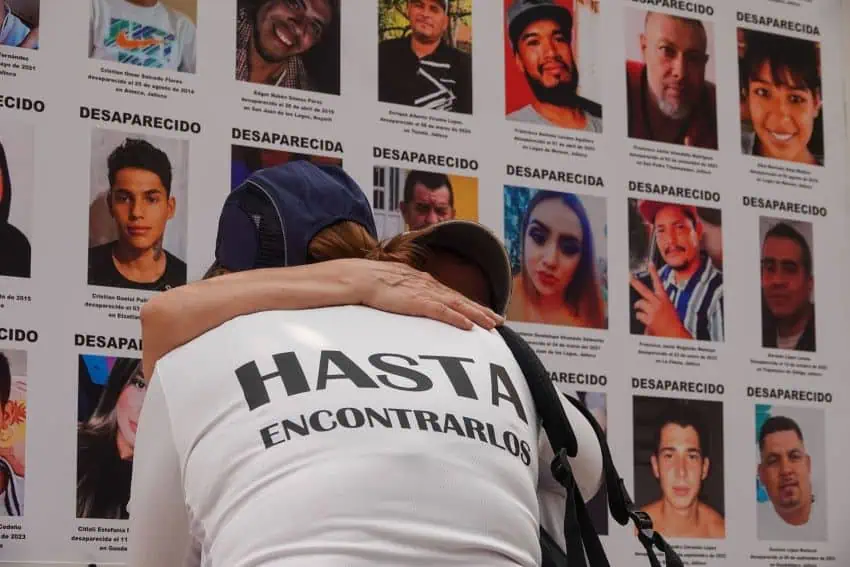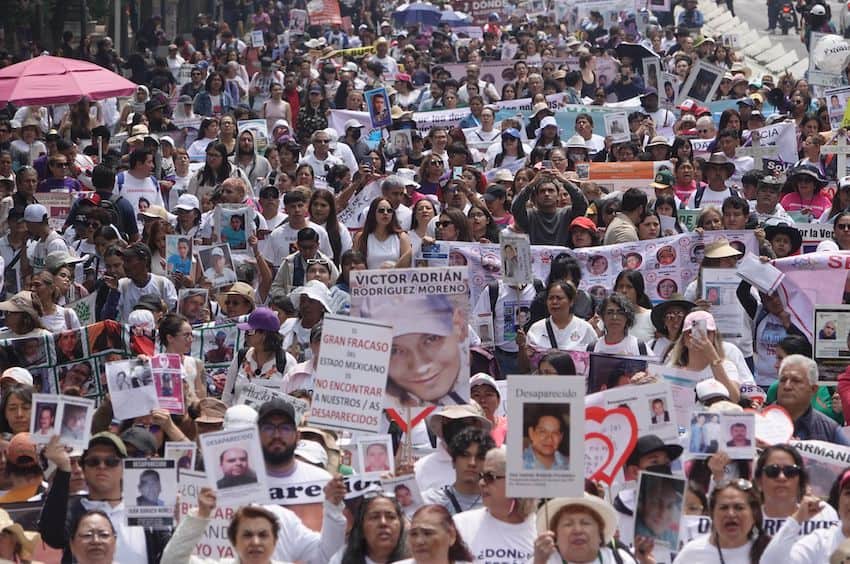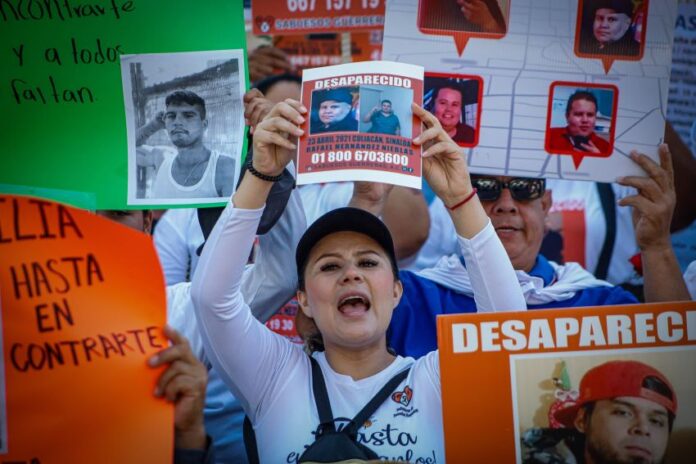The federal government has announced funding of more than 594 million pesos for the 32 state-based search commissions in Mexico, a country where almost 130,000 people are classified as missing.
The National Search Commission (CNB), part of the federal Interior Ministry, announced the transfer of 594.61 million pesos (US $30.31 million) to the search commissions in Mexico’s 32 federal entities. The amount each search commission will get ranges from more than 30 million pesos in the case of three states to just 53,550 pesos in the case of Yucatán.
According to publications in the federal government’s official gazette (DOF), state governments are required to top up the funding with their own resources by contributing an additional amount equivalent to at least 10% of the money they will receive from federal coffers.
The money allocated to each of the 32 state search commissions is to be used to fund search activities and the identification of any human remains that are found, according to a publication in the DOF.
According to the CNB’s national missing persons’ registry, 128,386 people were classified as “disappeared” or “unaccounted for” at midday on Monday.
Organized crime groups, including kidnapping rings, are responsible for large numbers of disappearances in Mexico, but government authorities have also been implicated in or accused of involvement in abductions over a period of decades.

In April, the United Nations’ Committee on Enforced Disappearances said it would seek additional information from the Mexican government after receiving information that “seems to indicate” that enforced disappearances are a “widespread and systematic practice” in Mexico.
The announcement drew a pointed response from the Mexican government, which said in a statement that it “rejects the statements of the committee members regarding the alleged practice of enforced disappearance by the state.”
Zacatecas will get the largest slice of the CNB funding
The search commission in the northern state of Zacatecas will get a CNB “subsidy” of 32.41 million pesos (US $1.6 million), the most of any state commission. The search commissions in Sinaloa and Michoacán are the only other ones that will receive amounts above 30 million pesos.
The search commissions in 13 states will receive subsidies between 20 million pesos and 29.85 million pesos, while those in eight states will get amounts between 11 million pesos and 19.2 million pesos.

The search commissions in eight states — Tlaxcala, Tabasco, Guanajuato, Aguascalientes, Oaxaca, Querétaro, Campeche and Yucatán — will receive subsidies of less than 10 million pesos.
The commission in Yucatán, usually regarded as Mexico’s least violent state, will get just 53,550 pesos (US $2,730) from the CNB, far below the amount allocated even to the commission in Campeche, which will receive the second smallest subsidy — 1.85 million pesos.
The subsidies are allocated in accordance with a long list of guidelines, detailed in an 80-page SEGOB/CNB document. They will be transferred in two separate installments.
The newspaper Milenio questioned why states such as Jalisco and Guanajuato — Mexico’s most violent state in terms of homicides in recent years — were allocated much lower amounts than Zacatecas, Sinaloa and Michoacán.
Referring to Jalisco and Guanajuato as “states with serious insecurity problems and where the discovery of clandestine graves or an increase in disappearances has been reported,” the newspaper noted that the two states will receive just 11 million pesos and 7.9 million pesos, respectively.
Searching mothers march on Mother’s Day
A significant number of “madres buscadores,” or searching mothers, took to the streets of Mexico City, Zacatecas, Culiacán and San Cristobal de las Casas on Mother’s Day to demand the truth about what happened to their children as well as justice and compensation.
In Mexico City, family members of missing persons marched from the Monument to the Mother to the Angel of Independence alongside members of the broader general public. Some of the participants aren’t searching for their children, but rather other relatives who disappeared and have never been found: their mothers, their brothers, their sisters, their uncles, their aunts.

Héctor and Teresa Águila, a couple whose 27-year-old son disappeared in Jalisco two years ago, told the EFE news agency that they’re “living in death.”
“We can’t taste food, we’ve lost our taste for life,” they said.
“I would like them [the authorities] to accompany us to Jalisco one day … and see how they kill the searchers; in April they killed two of us, we are afraid,” Héctor told EFE, referring to the murders of activist María del Carmen Morales and her 26-year-old son, Jaime Daniel Rodríguez Morales, last month.
Liliana Meza, another mother from Jalisco who is searching for her son, told the news magazine Proceso that she came to Mexico City to demand action from President Claudia Sheinbaum.
“We came to tell the president and the entire federal government that we need to eradicate [this problem],” she said.
“… It’s not enough to recognize there are disappearances in Mexico, it has to be recognized that there is a crisis at the federal level,” Meza said.
Sheinbaum’s reform proposal to combat missing persons problem is on pause
In March, as the discovery of a so-called “extermination camp” in the state of Jalisco continued to provoke horror, Sheinbaum announced what she called six “immediate” actions against the crime of disappearance and declared that “attending to the problem of missing persons” was a “national priority” for her government.
However, her plan to address the problem, including by strengthening the CNB and legislative reform, drew strong criticism from more than 150 search collectives, activists and relatives of victims of abduction and enforced disappearance.
“The families of missing people watched and listened to your response in the face of the disappearances crisis that is getting worse every day. We are deeply concerned about the proposal you make as it reflects a lack of knowledge about the institutional mechanisms and procedures that already exist in the country in search and investigation matters,” said a March 18 letter to the president that was endorsed by search collectives including the Brigada Nacional de Búsqueda (National Search Brigade) and Buscando Nuestros Desaparecidos (Searching for our Missing Ones).
In early April, Sheinbaum applied the brakes to her “fast track” reform proposal, which aimed to achieve a number of different things, including the creation of a “Single National Forensic Information Base” that compiles information from state and federal authorities including Attorney General’s Offices.
The legislative process was paused as the government sought feedback and ideas from search collectives.
According to Milenio, the collectives have put forward a range of proposals including ones that call for more funding for search efforts, “improving the profile of the officials that attend to them” and bolstering security for people carrying out searches for missing people.
In their March 18 letter, the search collectives called for the dismissal of CNB chief Teresa Guadalupe Reyes Sahagún, who they said has a “clear technical incapacity” to occupy the position she holds.
